Table of Contents
Turmeric, botanically called Curcuma longa, is the latest panacea in the wellness industry. Traditionally, you’ll see this Southeast-Asian native root in curries. Fueled by the news of its many health benefits, “the golden spice” has recently made its way into dietary supplements, smoothies, and lattes.
What is turmeric good for? You will find all the answers to this question, along with tips to increase its bioavailability, below.
Curcumin – Turmeric’s active component
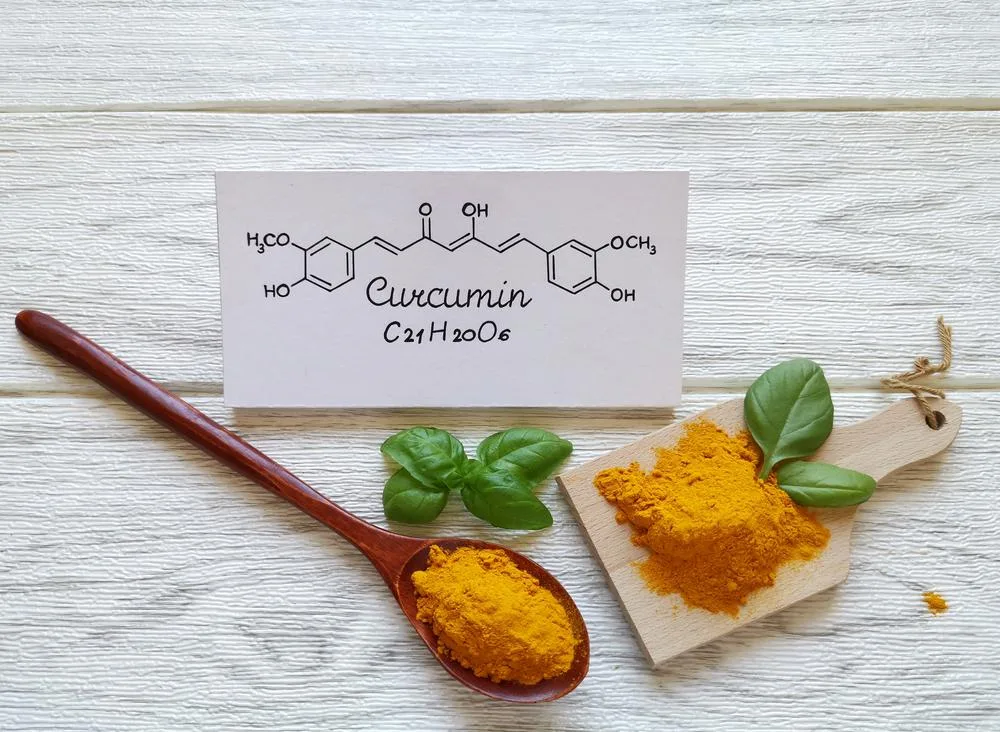
Turmeric’s most bioactive compound is Curcumin, a polyphenol. In traditional medicine, turmeric is known to improve circulation and digestion. These benefits occur because of its powerful compounds called curcuminoids. Curcuminoids are anti-inflammatory agents that may provide other health benefits. Curcuminoids make up 3-5% of the spice. For hundreds of years, curcuminoids have been used as a food preservative and a yellow colorant. They have been also used to treat cancer and a variety of ailments.
Preclinical evidence suggests that curcumin modulates many molecular pathways (1). Curcumin is anti-inflammatory, antimicrobial, anti-sporadic, anti-cancerous, and neuroprotective (2, 3). That means when you hear about turmeric’s root benefits, you’re hearing about curcumin.
Turmeric nutrition facts
Turmeric is full of nutrients. These include (but are not limited to) manganese, iron, potassium, and vitamin C. The earthy, yellow spice is phenol- and terpenoid-rich (4).
Phenols are potent antioxidants. They help delay or prevent chronic diseases. The most active polyphenol in turmeric is curcumin. Curcumin is credited with most of turmeric’s health benefits, as you will soon see below.
Nutritionally, turmeric is a powerhouse. In 100 grams of ground turmeric powder, you will find approximately (5):
- 312 calories
- 9.68 g protein
- 67.1 g carbohydrates
- 22.7 g fiber
- 3.25 g fat
The same 100 grams serving also provides:
- 55 mg Iron
- 168 mg Calcium
- 2,080 mg Potassium
- 299 mg Phosphorus
Turmeric’s nutritional value varies depending on its form. Fresh turmeric root, for example, contains more nutrients than dried turmeric powder. Turmeric supplements usually contain dried turmeric powder, curcumin extract, or both.
Health benefits of turmeric and curcumin
Turmeric is one of the healthiest spices. This is because of its impressive roster of bioactive compounds. Turmeric and curcumin have powerful antioxidant properties. These antioxidants can help neutralize free radicals and protect cells from damage.
Here are the top 15 benefits of turmeric and curcumin, according to research and nutritionists.
1. Anti-inflammatory properties
Chronic inflammation can manifest as arthritis, heart disease, metabolic disorders, or cancer (6). Curcumin is a powerful anti-inflammatory compound. Did you know that you can now get turmeric lattes and smoothies in ordinary chain coffee shops? This is because this wonder spice has been so well marketed.
Curcumin regulates the signaling pathways that cause inflammation. A recent clinical trial found that patients with osteoarthritis greatly benefit from nano curcumin (7). According to some studies, 400 mg of curcumin may be as effective as acetaminophen in relieving arthritis pain (8, 9).
Using turmeric for pain relief shows promise. Additional research is still required to confirm the viability of curcumin as a long-term therapeutic option.
Anti-inflammatory compounds in turmeric can improve symptoms of various maladies. These include common cold and arthritic pain.
2. Shield the body from free radicals
Curcumin has strong antioxidant properties. Antioxidants protect our bodies from harmful molecules called free radicals. These molecules can damage cells and lead to memory loss, mood problems, and diseases, including Alzheimer’s (10). Curcumin helps stop these free radicals, keeping our bodies safe from damage.
Curcumin can also help the lining of our blood vessels, called the endothelium, work better. This helps control blood pressure and clotting. Thus, curcumin can lower the risk of blood clots that cause heart attacks or strokes. Studies show that taking curcumin supplements can improve blood vessel function and lower the risk of cardiovascular disease (11).
3. Ease muscle soreness and cramps
The same potent anti-inflammatory effect that makes turmeric so effective in fighting chronic diseases also helps ease post-workout pain and period cramps.
Athletes experience normal joint wear and tear, and curcumin may help slow it down. A 2017 study discovered that athletes who took curcumin supplements had less muscle soreness than those who did not (12).
Curcumin can influence one of the inflammatory pathways that lead to delayed-onset muscle soreness (DOMS) (13). This is the typical soreness that develops a few days after vigorous exercise.
If you have sore muscles from a workout, drink turmeric tea.
4. May reduce high blood pressure
High blood pressure is one of the major risk factors for heart disease. High blood pressure can damage the arteries. This makes it difficult for the blood to reach your heart. Lifestyle changes and drinking turmeric tea may help reduce high blood pressure.
Ginger and turmeric rhizomes inhibit the angiotensin-converting enzyme (ACE). Turmeric, as an ACE inhibitor, lowers blood pressure by relaxing blood vessels. (14)
The body typically produces ACE to control blood pressure. However, a high-fat diet can raise ACE levels and, therefore, your blood pressure. Including turmeric in your diet may help inhibit ACE activity and thus lower your blood pressure.
When taken long-term, turmeric can impart blood pressure- and cholesterol-lowering effects.
5. Protects brain health
Again, curcumin in turmeric affects brain health.
Oxidative stress and inflammation damage the neurons that play a role in memory and learning. This can cause neurodegenerative diseases such as Alzheimer’s disease. Curcumin can increase the level of brain-derived neurotrophic factor (BDNF). BNDF helps in the growth and regeneration of neurons. So, BDNF may help delay Alzheimer’s disease (AD).
Tau aggregation plays a key role in the onset and progression of AD. Multiple studies suggest that curcumin can inhibit tau protein aggregation (15).
Recent studies indicate that curcumin can be a safe and effective natural antidepressant (16). A meta-analysis found that curcumin is well-tolerated by people with depression (17). In one study, a curcumin supplement was found to be as effective as Prozac in treating depression.
When combined with standard care, curcumin may help with AD, depression, and anxiety symptoms.
6. May help with diabetes
Curcumin may help with diabetes by reducing insulin resistance. It may also do so by managing fats in the body and increasing insulin sensitivity. In a 30-day study with 44 men who had colon lesions, curcumin supplements reduced the number of lesions by 40%. (18) Animal studies also show that curcumin can lower blood sugar levels and improve insulin sensitivity. (19)
In one study, people with type 2 diabetes who took curcumin for 8 weeks had lower fasting blood sugar levels. (20) Curcumin might even help prevent kidney problems associated with diabetes.
7. Cancer protection
As the curcumin in turmeric fights off oxidative stress, it can help prevent cancer. Curcumin has antioxidant and anti-inflammatory properties. Hence, it may extend protection against cancer. In vitro and in vivo studies suggest that curcumin can:
- kill cancer cells
- reduce tumor angiogenesis
- reduce the spread of cancerous cells
Turmeric was effective in preventing both colon cancer and skin cancer in rats exposed to carcinogens. Curcumin may also help reduce the side effects of chemotherapy (21). According to a 2021 review, curcumin improves the efficacy of chemotherapy and radiotherapy (22).
Research in laboratories shows that curcumin can stop breast cancer cells from growing. However, it is not yet known if this works the same way in humans. This is because our bodies break down curcumin quickly, which makes it hard to study (33).
Researchers are looking at turmeric as a therapy for various types of cancer.
8. Turmeric is good for your skin

In folk medicine, turmeric paste has a long-standing history of treating skin conditions such as eczema. It may also help reduce acne scarring. Traditionally, it was used to soothe and heal burn wounds. When turmeric paste is used to mask the face, it works like magic in toning down the skin, improving skin elasticity, and more (23).
Turmeric may temporarily stain the skin or leave a yellow residue. However, if you are allergic to turmeric or curcumin, direct contact can irritate the skin.
Turmeric has low bioavailability. This means you should use it to supplement rather than replace skin treatments.
9. Help manage metabolic syndromes
Metabolic syndrome is a collection of symptoms that can lead to type 2 diabetes and heart disease. High cholesterol and high BP are examples of metabolic syndrome.
Curcumin aids in regulating blood sugar levels. It also helps reduce the concentration of serum cytokines, which are biomarkers for metabolic diseases.
Chronic inflammation and oxidative stress are two major causes of insulin resistance and metabolic dysfunction. Curcumin may help reduce oxidative stress and inflammation (24). Curcumin may be useful in the treatment of type 2 diabetes. According to studies, curcumin enhances insulin sensitivity and glucose metabolism in diabetes patients (25). It also helps lower blood cholesterol levels (26).
Curcumin may help maintain normal blood sugar levels, ward off type 2 diabetes, and protect the heart.
10. May help with depression
Depression is a serious mental health problem that affects a person’s life. Curcumin might help with depression symptoms. Some studies show that curcumin can act like an antidepressant and help with major depression (27). One study found that taking Prozac and curcumin together gave the best results.
Curcumin may improve mood and lower depression and anxiety by increasing a protein called brain-derived neurotrophic factor (BDNF) (28). BDNF helps grow new brain cells and protects the ones we have. Low BDNF levels are linked to depression and other brain problems, such as Alzheimer’s disease. Research shows that curcumin can raise BDNF levels, which might reverse changes caused by low BDNF (29).
11. May help with digestive problems
Curcumin has been used for a long time to help with stomach problems. Research shows that curcumin has things in it that can help reduce inflammation in the stomach (30). It has also been studied for helping with bowel disease, liver disease, and other stomach issues (31).
But it’s important to know that curcumin might cause side effects too. For example, turmeric can make the stomach produce more acid, which might not be good for some people.
Bioavailability of turmeric
As with any herb, determining the most effective and safest dose is difficult. The therapeutic dose of curcumin is 500 to 1,000 mg per day. Nutritionists recommend eating half to one tablespoon of turmeric per day for anti-inflammatory workout benefits.
Curcumin is fat-soluble and poorly absorbed from the gut. Making curcumin bioavailable is still a challenge.
In South Asian cuisine, turmeric is often cooked in oil, which makes it more bioavailable. Its dietary supplements contain piperine, a compound found in black pepper, to increase curcumin’s bioavailability.
A study found that combining 20 mg/kg piperine with 2 g/kg curcumin can increase bioavailability by 2,000%. More research is needed to determine whether the outcomes apply to humans.
Nutritionists suggest taking curcumin supplements with healthy fats from avocado or olive oil.
How to enjoy turmeric
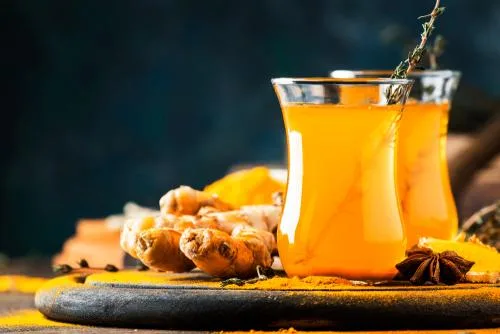
There are many ways to enjoy the health benefits of turmeric every day. Turmeric can be included in egg dishes, roasted vegetables, rice dishes, dips, smoothies, curries, soups, and even muffins. Notwithstanding, remember that it can stain things easily. To get the most health benefits, choose organic turmeric with a specific curcumin amount. If you get stains, try using gentle cleaners. For better absorption, eat it with healthy fats such as oils, avocados, nuts, and seeds. Turmeric is great, but be careful with side effects and stains!
Turmeric tea
Turmeric tea is a popular way to enjoy turmeric and curcumin. To make it, mix a small amount of turmeric powder with water. Add a little black pepper and some ghee or coconut oil. You can also steep it in hot water or milk. Add ginger, cinnamon, lemon zest, or honey for extra flavor. It can help with digestion and inflammation.
Turmeric powder
Turmeric powder can be used in many recipes, such as smoothies, curries, and soups. It adds color, flavor, and nutrition. You can also make turmeric tea with it, hot or cold. Buy organic turmeric powder without fillers or additives. Store it in a cool, dry place away from light.
Turmeric supplements
Turmeric is available as capsules and tablets, but the dosage depends on the person. Studies suggest taking 500-2000 mg per day of supplements. Such supplements must have listed active ingredients such as turmeric powder or curcumin extract. Check for a standardized curcumin extract and have it tested for quality and purity before taking it.
Turmeric capsules
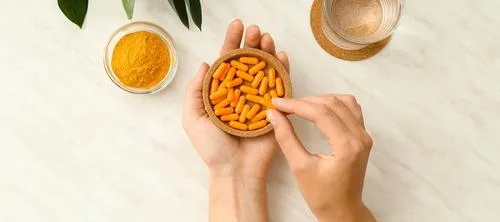
Turmeric capsules help you get curcumin’s health benefits. To get the most from your dietary supplement, take it with black pepper, which boosts absorption, and have a meal high in fat. Always take capsules with a liquid or fatty food. Remember that large doses can cause mild problems. Overdose symptoms include stomach issues, headaches, and skin rashes. Talk to a healthcare professional before taking any supplements.
Potential side effects
Turmeric is extremely safe. But despite its health benefits, turmeric isn’t for everyone.
- High doses of turmeric can cause unpleasant side effects, including diarrhea and nausea.
- If you’re pregnant, avoid taking therapeutic doses. Animal studies suggest that curcumin may alter estrogen levels. Nevertheless, in small amounts, it may be beneficial during pregnancy.
- If you’re anemic, avoid turmeric. Curcumin may interfere with iron metabolism.
- Curcumin may interact with anticoagulants, slowing blood clotting.
- Take caution if you are on beta-blockers for hypotension.
- Curcumin supplementation may improve the efficacy of sulfonylureas in older adults and cause hypoglycemia.
- Turmeric contains oxalates. Avoid using it if you have gallstones or liver disease.
A 2018 study found that products containing synthetic curcumin are more likely to be cheaper than those with natural turmeric (32). Products with turmeric root have higher levels of lead.
Can I safely use turmeric every day?
Yes, turmeric is generally safe for daily use. Taking up to 8 grams of curcumin, found in turmeric, for 2 months or 3 grams of turmeric for 3 months should be safe. Usually, there are no serious side effects from using it.
What are turmeric’s antioxidant properties?
Curcumin in turmeric helps remove harmful oxygen and nitrogen. It binds with metals and controls many enzymes. This makes turmeric an antioxidant.
Who should avoid taking curcumin supplements?
Individuals on blood-thinning medications should avoid high doses of turmeric supplements, as it may increase bleeding risk. Also, people with liver or bile duct issues should not take curcumin supplements because they can boost bile production.
Are there any side effects of using turmeric?
Turmeric in food is safe, but taking high amounts as a supplement for a long time may cause stomach issues or even ulcers. If you have gallstones or bile passage problems, consult your doctor before using it.
Is turmeric beneficial for kidney health?
Turmeric is typically safe, but excessive amounts might cause kidney stones. If you are prone to kidney stones, consult your doctor before taking turmeric- or curcumin-based supplements.
Summary
Turmeric is a true superfood, thanks to its active component, curcumin. Make sure you use it correctly—and safely—to reap the benefits.
Add it to soups and curries, or brew a herbal tea. Turmeric also makes a flavorful, tangy addition to green smoothies and juices.






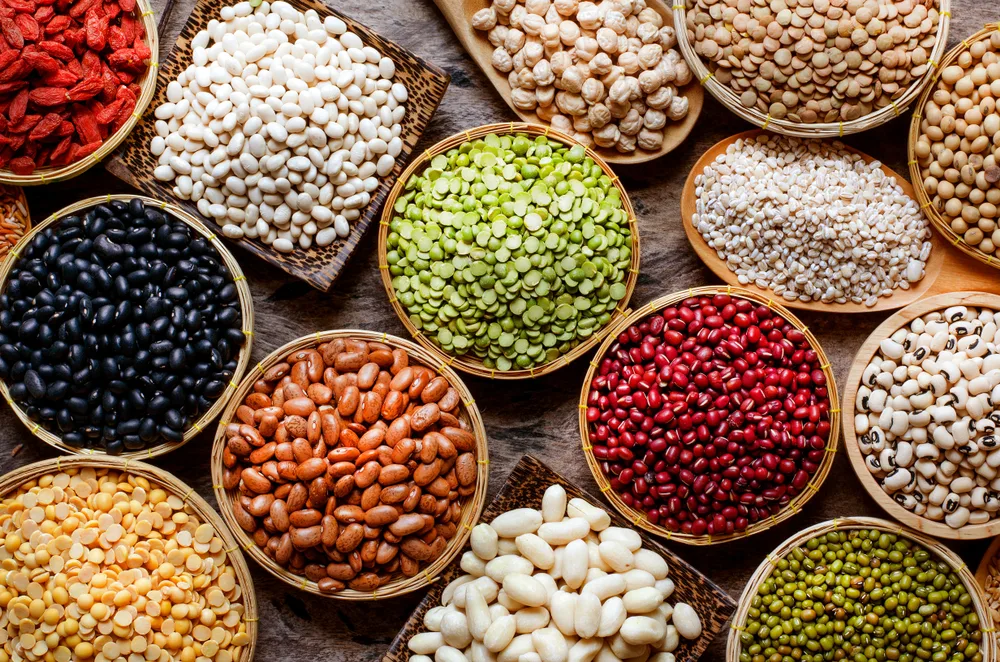





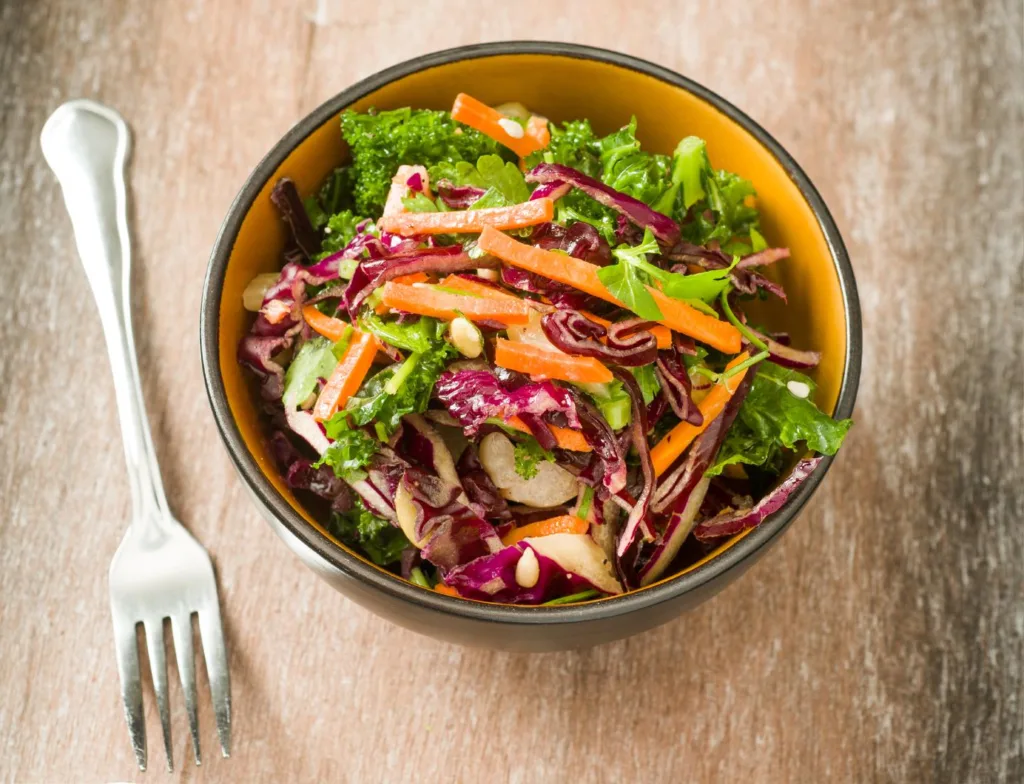
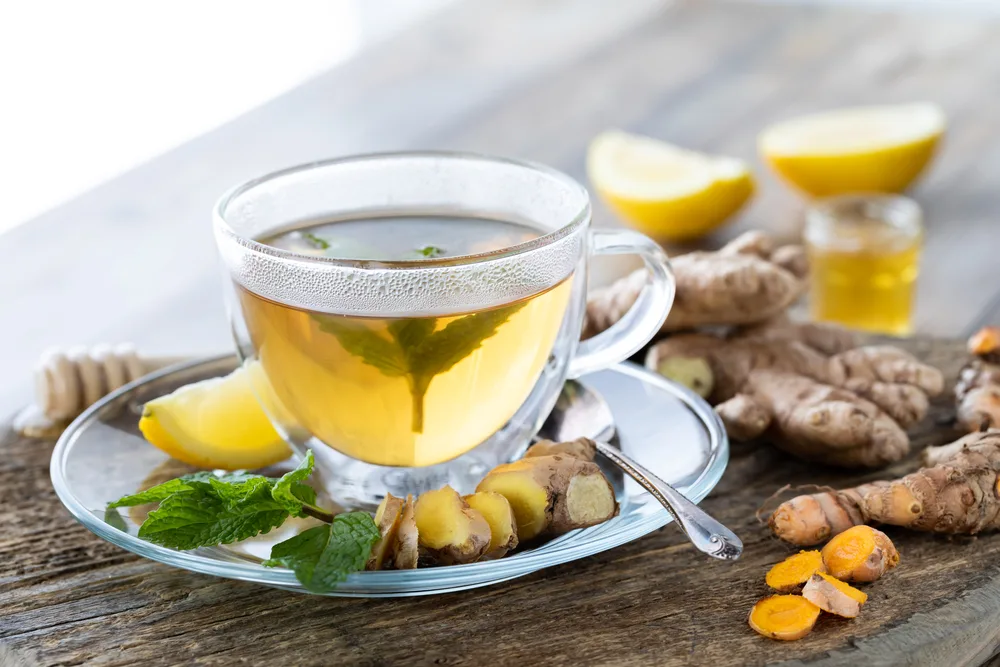
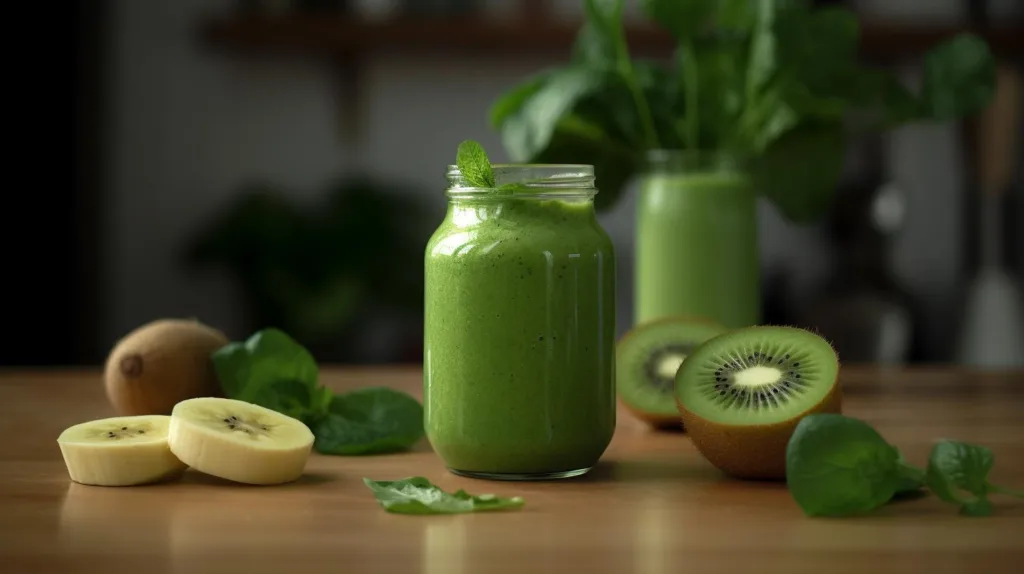
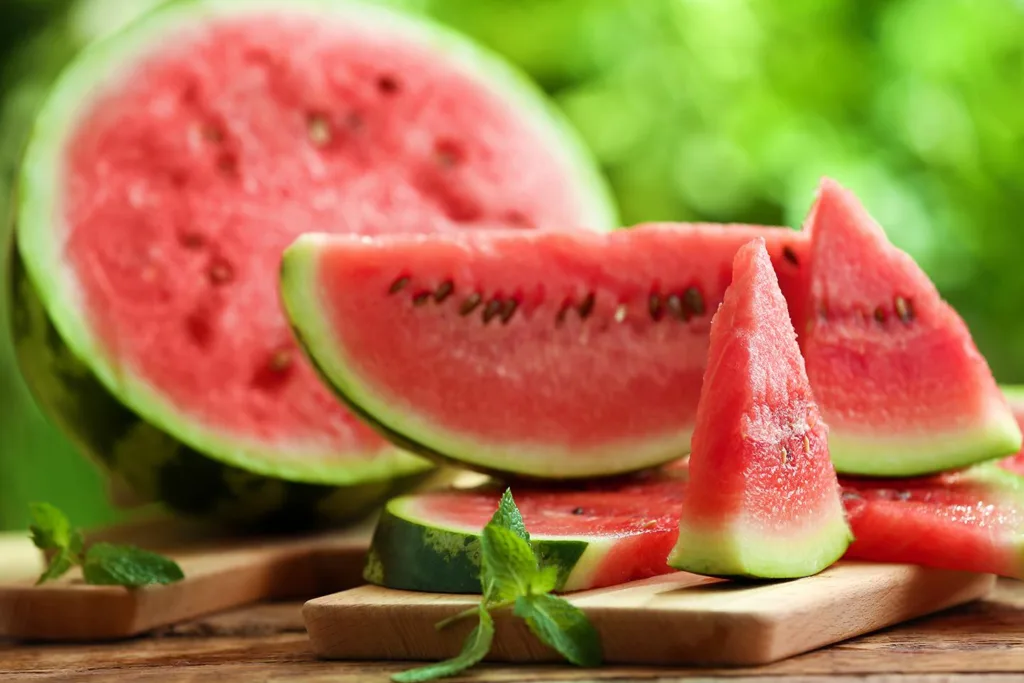

Comments
0